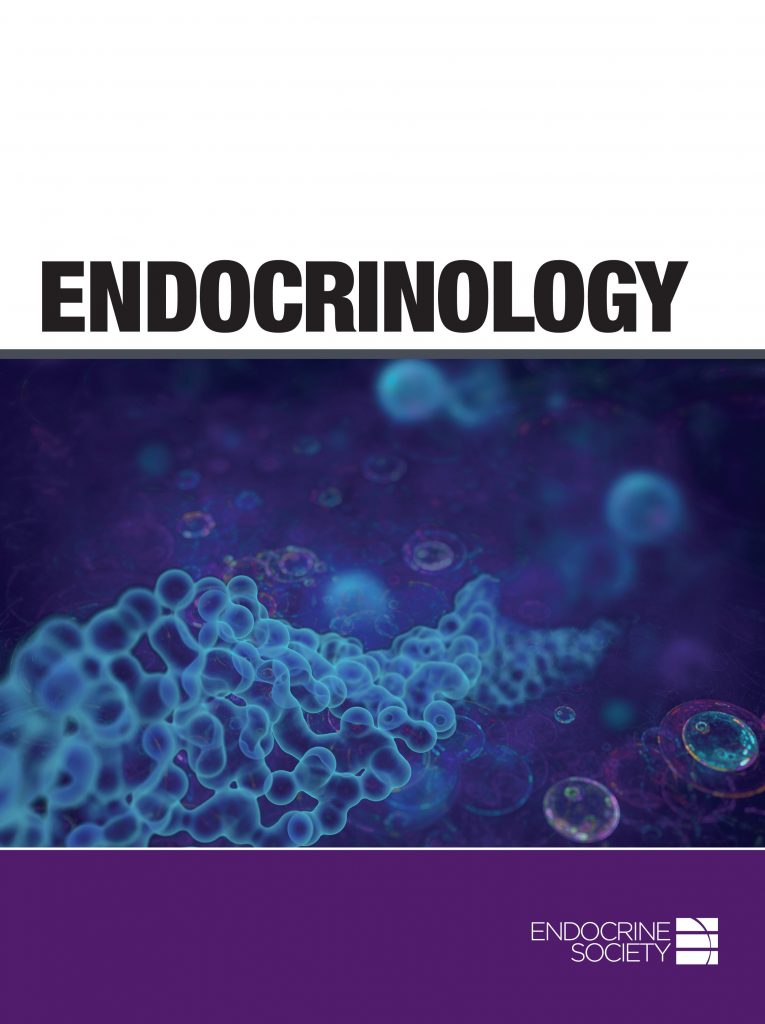The editors from the Endocrine Society journal, Endocrinology, share their top picks for the outstanding endocrine discoveries of 2022.
From the Editor-in-Chief of Endocrinology

Editor-in-chief Carol A. Lange, PhD, professor of medicine (Division of Hematology, Oncology, and Transplantation) and pharmacology; Tickle Family Land Grant Endowed Chair of Breast Cancer Research; co-lead, Cellular Mechanisms of Cancer Program; and director, Molecular, Genetic, and Cellular Targets of Cancer Training Program at the University of Minnesota Masonic Cancer Center in Minneapolis chose several papers that cover topics she specializes in. “It was a great year,” Lange says, “our field is so vibrant!”
Although admittedly hard to choose, “90 Years of Progesterone: Progesterone Receptor Signaling in the Normal Breast and Its Implications for Cancer” published in the July 2020 issue of Journal of Molecular Endocrinology by Brisken, C. and Scabia, V. was her favorite: “This is likely a first to show progesterone receptors are drivers of metastasis in vivo,” she explains.
Another that rose to the top of her list is “Insulin Action and Resistance Are Dependent on a GSK3β-FBXW7-ERRα Transcriptional Axis” by Xia H., et al. in the April issue of Nature Communications that shows that nuclear receptors multitask by “sensing” multiple hormones.
Two focusing on mutant estrogen receptors — an area currently of great interest in the endocrine research sphere — are “Steroid Hormone Receptor and Infiltrating Immune Cell Status Reveals Therapeutic Vulnerabilities of ESR1-Mutant Breast Cancer” by Williams M. M., et al., published in Cancer Research in February 2021, and “ESR1 Mutant Breast Cancers Show Elevated Basal Cytokeratins and Immune Activation” by Li, Z. et al., published in the April issue of Nature Communications.
Immunomodulation is another theme Lange has particular interest in, and “Obesity Alters Pathology and Treatment Response in Inflammatory Disease” by Bapat, S. P. et al., published in March in Nature, got her attention, as did “Autocrine Vitamin D Signaling Switches Off Pro-Inflammatory Programs of TH1 Cells” by Chauss, D. et al., published in the January issue of Nature Immunology. This one, says Lange, “shows how vitamin D modulates pro-inflammatory T cells, by shutting them down, which is relevant to COVID infection. It also may explain why it protects from a number of cancers and can protect from COVID.”
More From the Editors of Endocrinology

Several associate editors of Endocrinology also contributed. Jennifer K. Richer, PhD, tenured professor of pathology, University of Colorado Anschutz Medical Campus and co-leader, Tumor Host Interactions Program, University of Colorado Cancer Center, in Aurora, Colo., also appreciated Lange’s choices and selected four additional papers that shed light on hormones and immune modulation and metastasis in cancer themes.
“I really liked these articles in Nature from June: “Androgen Receptor Activity in T Cells Limits Checkpoint Blockade Efficacy” by Moran, A. E., et al., and “Androgen Receptor Blockade Promotes Response to BRAF/MEK-Targeted Therapy” by Vellano, C. P., et al. I also like these two in Endocrinology: from July, “The Liver X Receptor Is Selectively Modulated to Differentially Alter Female Mammary Metastasis-Associated Myeloid Cells” by Ma, L. et al.and “T-cell Metabolism as Interpreted in Obesity-Associated Inflammation” from October by Bharath, L. P. et al.
Hershel Raff, PhD, FAAAS, FAPS professor of medicine, surgery, and physiology and professor of Pharmacy School, at the Medical College of Wisconsin (MCW), and director of the Endocrine Research Laboratory at Aurora St. Luke’s Medical Center, in Milwaukee, Wis., chose “Corticosteroid-binding Globulin (SERPINA6) Establishes Postpubertal Sex Differences in Rat Adrenal Development” from the October issue of Endocrinology by Toews, J. N. C. “There is intense interest in the pubertal development of sex differences in the hypothalamic–pituitary–adrenal (HPA) axis,” he says. “Many researchers overlook how important plasma corticosteroid-binding protein (CBG) is in all aspects of HPA axis function including development of sex differences. Using a novel rat model, the authors concluded that ‘…sex differences in adrenal growth, morphology and gene expression profiles that emerge during puberty in rats are dependent on concomitant increases in plasma CBG produced by the liver.’ The effects of CBG on the adrenal transcriptome has significant implications in clinically relevant sex differences in HPA axis dynamics and function.”
Patricia L. Brubaker, PhD, FRSC, professor, Departments of Physiology and Medicine; Banting & Best Distinguished Scholar at the University of Toronto, in Ontario, credits “Beta-Hydroxybutyrate Suppresses Hepatic Production of the Ghrelin Receptor Antagonist, LEAP2” by Holm, S. et al., published in Endocrinology in June. “This study provides exciting new insight into the regulation of hunger signals during fasting, through studies in humans exposed to a variety of different environmental conditions, as well as in animal models,” she explains. “The findings indicate that signaling by the orexigenic hormone, ghrelin, is modulated by a fasting-induced metabolite (b-hydroxybutyrate) through actions on a hepatic ghrelin receptor antagonist.”
Daniel J. Bernard, PhD, professor, Department of Pharmacology and Therapeutics; director, Centre for the Study of Reproduction, at McGill University in Montreal, Canada, selected
“TGFBR3L Is an Inhibin B Co-Receptor that Regulates Female Fertility” published in December 2021 by Brûlé, E. et al. in Science Advances. “At the end of 2021, the orphan protein TGFBR3L was discovered to be the long sought-after inhibin B receptor,” says Bernard, who was a coauthor of the paper. “Inactivation of the Tgfbr3l gene in female mice led to increases in follicle-stimulating hormone levels and litter sizes. TGFBR3L’s restricted expression to pituitary gonadotropes makes it a novel target to similarly regulate FSH and fertility in humans.”

